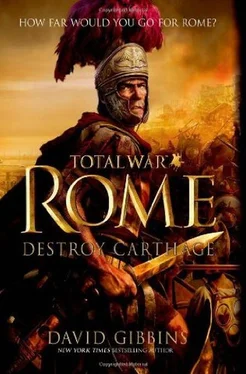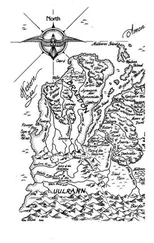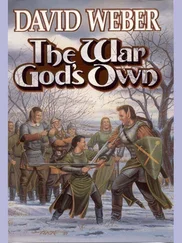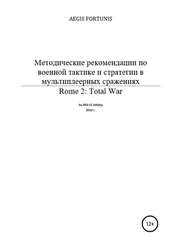David Gibbins - Total War Rome - Destroy Carthage
Здесь есть возможность читать онлайн «David Gibbins - Total War Rome - Destroy Carthage» весь текст электронной книги совершенно бесплатно (целиком полную версию без сокращений). В некоторых случаях можно слушать аудио, скачать через торрент в формате fb2 и присутствует краткое содержание. Год выпуска: 0101, Издательство: Thomas Dunne Books, Жанр: Исторические приключения, на английском языке. Описание произведения, (предисловие) а так же отзывы посетителей доступны на портале библиотеки ЛибКат.
- Название:Total War Rome: Destroy Carthage
- Автор:
- Издательство:Thomas Dunne Books
- Жанр:
- Год:0101
- ISBN:нет данных
- Рейтинг книги:5 / 5. Голосов: 1
-
Избранное:Добавить в избранное
- Отзывы:
-
Ваша оценка:
- 100
- 1
- 2
- 3
- 4
- 5
Total War Rome: Destroy Carthage: краткое содержание, описание и аннотация
Предлагаем к чтению аннотацию, описание, краткое содержание или предисловие (зависит от того, что написал сам автор книги «Total War Rome: Destroy Carthage»). Если вы не нашли необходимую информацию о книге — напишите в комментариях, мы постараемся отыскать её.
Total War Rome: Destroy Carthage — читать онлайн бесплатно полную книгу (весь текст) целиком
Ниже представлен текст книги, разбитый по страницам. Система сохранения места последней прочитанной страницы, позволяет с удобством читать онлайн бесплатно книгу «Total War Rome: Destroy Carthage», без необходимости каждый раз заново искать на чём Вы остановились. Поставьте закладку, и сможете в любой момент перейти на страницу, на которой закончили чтение.
Интервал:
Закладка:
Polybius put down his eyeglass again, and spoke with the detachment of a scholar. ‘Unless I’m mistaken, we are about to witness a Carthaginian child sacrifice.’
Scipio was aghast. ‘Jupiter above. What?’
‘Child sacrifice has a long history among the Semitic peoples of the east Mediterranean, the ancestors of the Carthaginians. The writings of the Israelites tell of how their ancient prophet Abraham offered up a boy called Isaac to their god.’
A drum began to beat, slowly, insistently, from somewhere inside the sanctuary. ‘The drumbeat was originally meant to drown out the screams of the victim,’ Polybius said. ‘But I doubt whether they’ll wish to do that this time. I think what we’re about to see is mainly for our benefit, so the more screams, the better.’
A boy in a white tunic, perhaps ten years old, came walking out into the sanctuary, then mounted the stone stairs towards the three men standing at the top. As he neared the platform, Hasdrubal beckoned him, and the boy leapt up and embraced him, clinging to the arms of the lionskin. Hasdrubal put him down gently, and held his hand. The boy could not know what was about to happen. Fabius’ stomach lurched as he realized the truth. The boy was Hasdrubal’s son.
The drumbeat slowed. The two priests suddenly pulled the boy off his feet, one taking the arms and the other the legs, quickly wrapping his wrists and ankles together with chains. Down below at the base of the bronze god the slaves hung on to the arms of the bellows, ready to compress them. Hasdrubal took the boy from the priests and held him in front of the gaping maw of the beast; the heat coming from within was already visible, shimmering in the air above. Fabius could see the boy’s head on one side of Hasdrubal, looking around frantically, sensing the horror that was about to befall him. For a moment Fabius felt for the man. Somewhere beneath that lionskin, beneath the rage, the cruelty, the self-destruction, was the utter despair of a father who knew that his son loved him, had felt his embrace, and yet he had been driven to carry out the unthinkable, the worst that war could make a man do.
Hasdrubal took a step forward, and tossed the boy into the beast’s mouth. There was a tumbling and clanking sound, magnified and echoing, as the priests let out the chains and the boy rolled down. A high pitched scream rent the air, and then a terrible shriek rose from somewhere behind the walls of the Tophet, the cry of his mother, followed by a wail of lamentation that seemed to ripple through the city. The bronze god erupted in a roar of fire, as if the god himself were awakening; a sheet of flame belched out and curled up high above. Down below, the slaves worked the giant bellows, the whips of the priests slashing into their backs. The smell of burned meat began to waft across the harbour. Then the drumbeat changed, faster now, and the slaves ceased their work. The two priests on the platform began to haul on the chains, link by link, keeping to either side of the beast’s mouth to avoid the scorching heat. They pulled out their ghastly burden, and Hasdrubal took it.
He turned, and Fabius could see the charred and shrivelled body of the boy, the legs and arms contracted and the mouth stretched open, caught in a scream. Hasdrubal raised the corpse towards the twin peaks of the mountain, towards Bou Kornine. But then he turned towards the harbour, raising the body of his son as high as he could.
Fabius stared in horror. Hasdrubal was not offering his sacrifice to the god. He was offering it to them.
Polybius put a hand on his Scipio’s arm. ‘He’s taunting us. He knows that no Roman who loves his son could stand this. He’s trying to make you order the attack before we are ready. Keep your nerve.’
‘Scipio Aemilianus,’ Hasdrubal bellowed, his voice carrying across the harbour, over the ranks of legionaries who had been watching him, transfixed. ‘Carthago delenda est.’
It was the cry of those in the Roman Senate who had sent Scipio here, words now used by a man who could have no purpose left in living. Carthago delenda est. Carthage must be destroyed.
A streak of sunlight burst through the twin peaks of the mountain and lit up the Tophet, then seared through the city as if it had been struck by a bolt of lightning. A moment later there was a dull thud from one of Ennius’ catapult ships and a ball of fire rose into the air, lingering for a moment over the city like a giant burning star and then crashing down on to the temple platform, spraying gobs of fire into the streets below.
It was the signal.
Scipio turned to Polybius. ‘Hasdrubal shall have what he wants.’ He raised his left arm and held it straight out in front of him. Down below, he saw the trumpeters lift their long horns to their lips, watching him. The drumbeat had stopped, and for a moment there was silence. Fabius felt a wisp of wind on his cheek, and looked out to the horizon again, squinting now against the sun. He saw only red.
Scipio let his arm drop.
‘Unleash war,’ he snarled.
24
Twenty minutes later, Fabius stood beside Scipio in front of the first maniple of the first legion, their swords drawn. They had crashed through the breach made by the ram, Fabius slightly ahead, and had run up the street towards the Byrsa hill, expecting opposition behind every street block. But there had been none, and they had quickly realized that Hasdrubal and his depleted force of mercenaries and Carthaginian troops must have retreated to a defensible position close to the centre of the city, to the place that Fabius and Scipio had seen three years before near the old quarter of houses below the Byrsa. The two men had reached that place now, and stood aside while the legionaries streamed into the open area where they had seen the Sacred Band training, now stripped of its embellishments; it had clearly been used as a storage facility for the troops, with wooden grain bins around the edge that all seemed empty.
Ahead of them lay a wall of rubble hastily built to block the streets on the south side of the city; along the top was the wooden palisade they had seen three years ago above the level of the surrounding houses. As the legionaries in the vanguard surged forward and sought gaps in the barrier, a blare of trumpets sounded from the parapet and Hasdrubal appeared with a group of soldiers, all of them wearing the burnished breastplates and lobed helmets of the Sacred Band. Fabius watched in astonishment as two four-horse chariots came into view beside them, veering round and facing in opposite directions, the horses stomping and whinnying on the narrow ledge. It seemed a baffling spectacle, of no clear purpose, until he saw what was held between them: it was a man in a legionary’s armour, his head swollen and unrecognizable, his arms tied to the back of one chariot and his legs to the other. Fabius turned to Scipio, gripping his arm. ‘Hasdrubal is taunting you again. That must be one of the Roman prisoners taken during the fight for the harbour. Hasdrubal knows that the traditional way of executing traitors in Rome is to draw them between two quadrigae. ’
Hasdrubal bellowed; there was a swish of whips and the two chariots leapt forward along the parapet, almost immediately tumbling off the side into a tangled mess at the base of the wall, the horses shrieking and neighing. As they did so the man tied between them was torn in half, his upper torso springing forward like a slingshot, spraying his innards over the legionaries watching in horror below. There was a collective howl of anger, and a surge forward that the centurions struggled to control.
But worse was to come. Four wooden poles were quickly raised where the horses had stood on the parapet, and four more prisoners appeared, shackled and naked except for their helmets. Hasdrubal bellowed again, and they were tied to the poles and dangled over the legionaries below. A giant Nubian slave appeared, wearing only a loincloth, with metal hooks where his hands should have been. He clashed them together, and then tore at the nearest prisoner, ripping a jagged chasm across his midriff and pulling out his intestines. He sauntered over to the next one, jeering at the Romans like a circus clown, and then with both hooks gouged the man’s eyes out and ripped his cheeks open. He spun around and slashed his hooks over the third man’s groin, ripping off his genitals and flinging them out over the legionaries below. He stood in front of them, beating his chest and howling. Fabius felt sick, and he saw Scipio swallow hard. The other legionaries, the comrades of the men on the platform, looked stunned with horror, unable to move.
Читать дальшеИнтервал:
Закладка:
Похожие книги на «Total War Rome: Destroy Carthage»
Представляем Вашему вниманию похожие книги на «Total War Rome: Destroy Carthage» списком для выбора. Мы отобрали схожую по названию и смыслу литературу в надежде предоставить читателям больше вариантов отыскать новые, интересные, ещё непрочитанные произведения.
Обсуждение, отзывы о книге «Total War Rome: Destroy Carthage» и просто собственные мнения читателей. Оставьте ваши комментарии, напишите, что Вы думаете о произведении, его смысле или главных героях. Укажите что конкретно понравилось, а что нет, и почему Вы так считаете.












